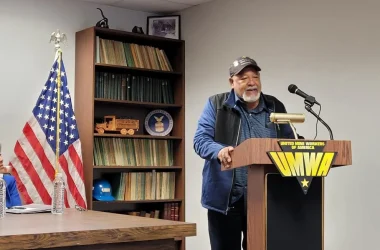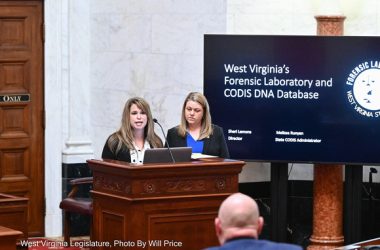By ERIN BECK
Charleston Gazette-Mail
CHARLESTON, W.Va. — The following are some potential questions by prospective patients, as well as some misconceptions, about the medical marijuana bill that passed the West Virginia Legislature and is on its way to the governor. The original bill was sponsored by Sen. Richard Ojeda, D-Logan, but the House of Delegates later amended it, based on a proposal by Delegate John Shott, R-Mercer and House Judiciary chairman. That more restrictive version has been heavily criticized in the days since.

Question: Does my condition qualify?
According to the bill, the following serious health conditions qualify: cancer; HIV or AIDS; amyotrophic lateral sclerosis; Parkinson’s disease; multiple sclerosis; damage to the nervous tissue of the spinal cord with objective neurological indication of intractable spasticity; epilepsy; neuropathies; Huntington’s disease; Crohn’s disease; post-traumatic stress disorder; intractable seizures; sickle cell anemia; severe chronic pain of neuropathic origin in which traditional treatments didn’t work or aren’t recommended; and terminal illness, meaning having a prognosis of one year or less to live.
Shott said he and the attorney who drafted the amendment didn’t include conditions unless there was “sufficient medical evidence to show that condition is alleviated” by marijuana. And the federal government’s restrictions on marijuana make it difficult to conduct research.
But the bill also instructs the Bureau of Public Health to begin a medical marijuana research program.
Also, if the state Department of Health and Human Resources’ Bureau of Public Health, which will oversee the state’s medical cannabis program, decides a condition counts as an “emergency,” it can decide to immediately add it to the list.
Other conditions that don’t count as “emergencies” could be added by the Legislature later.
Question: How do I get approved?
You would need to apply for a patient ID card from the Bureau of Public Health. This costs $50, unless the board decides you can’t afford to pay. Shott likened the process to “going to get your driver’s license.”
You would also need to get a certificate from a doctor who has been approved to recommend marijuana by the Bureau of Public Health. Once you have both a card and a certificate, you would take both to one of the dispensaries in the state. The bill states that there can be up to 30 of these facilities.
Dispensaries can also sell marijuana to caregivers, who also must apply for an ID card from the Bureau of Public Health.
The bureau has the ability to deny patients with histories of drug abuse or drug dealing and caregivers who have been convicted of drug-related felonies.
The bill does not allow medical marijuana patients to grow the plants themselves.
Question: When does the law take effect?
As of Saturday afternoon, Gov. Jim Justice had not yet received the bill to sign it, but he has said he is amenable to the idea of medical marijuana legislation. Under state law, he has five days to veto a bill while the Legislature is in session (the latest version passed Wednesday).
The bill states the Bureau of Public Health will not begin issuing ID cards until July 1, 2019. But if the bureau decides it’s ready sooner, the Legislature could change that date.
Misconception: Patients will have to take pills
Fact: According to the bill, medical marijuana may be dispensed by the following means: pill; oil; topical forms, including gels, creams or ointments; vaporization or nebulization; tincture; liquid; or dermal patch.
You are free to vape or use a nebulizer. You can cook with the oil. You can put droplets (tinctures) in your mouth. You can apply creams to the skin.
You do not have to take a pill.
Misconception: Patients can’t consume edibles
Fact: According to the bill, dispensaries will not be able to sell pre-made edibles, but oils are allowed. You are free to make them yourself.
The Bureau of Public Health will also, at some point, develop a website with more public information.
See more from the Charleston Gazette-Mail





